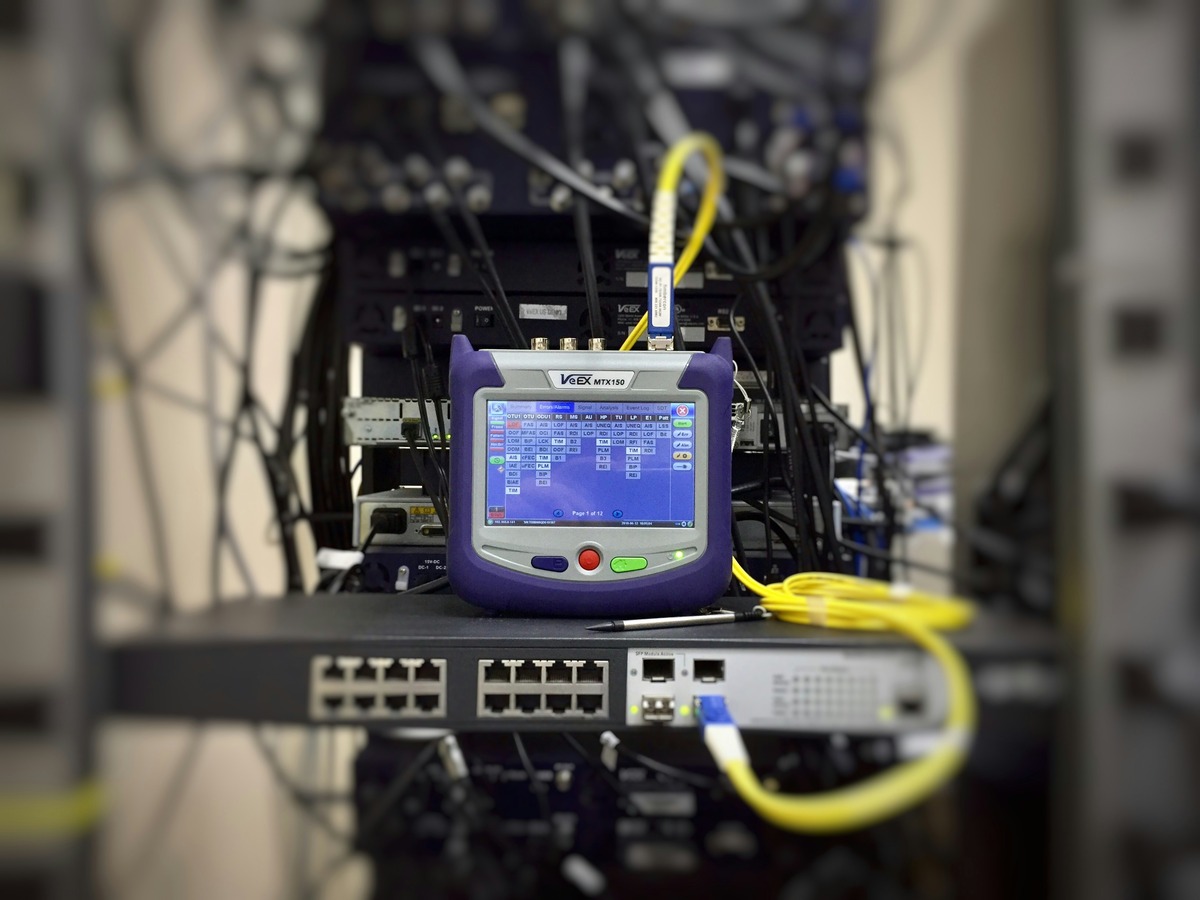Home>Education>The Ultimate Guide: Choosing Between Computer Science And Data Science Degrees


Education
The Ultimate Guide: Choosing Between Computer Science And Data Science Degrees
Published: January 7, 2024
Looking to pursue a degree in education? Learn about the differences between computer science and data science degrees to make the right choice for your career path. Discover the ultimate guide to help you decide.
(Many of the links in this article redirect to a specific reviewed product. Your purchase of these products through affiliate links helps to generate commission for Noodls.com, at no extra cost. Learn more)
Table of Contents
- Introduction
- Understanding Computer Science Degrees
- Understanding Data Science Degrees
- Comparing Computer Science and Data Science Degrees
- Career Opportunities in Computer Science
- Career Opportunities in Data Science
- Factors to Consider When Choosing Between Computer Science and Data Science Degrees
- Conclusion
Introduction
Choosing the right educational path is a crucial decision that can significantly impact one's future career prospects. In today's digital age, the fields of computer science and data science have emerged as two of the most sought-after disciplines, offering promising opportunities for those with a passion for technology and analytics.
As technology continues to advance at a rapid pace, the demand for skilled professionals in computer science and data science has soared across various industries. Both fields are inherently interconnected, yet they encompass distinct areas of study, each with its unique focus and applications.
In this comprehensive guide, we will delve into the intricacies of computer science and data science degrees, exploring the fundamental differences between the two disciplines and shedding light on the diverse career paths they offer. By gaining a deeper understanding of these fields, prospective students can make informed decisions when considering which degree to pursue based on their interests, strengths, and long-term aspirations.
Throughout this guide, we will examine the core curriculum, practical applications, and potential career trajectories associated with computer science and data science programs. Moreover, we will highlight the key factors that individuals should take into account when weighing the merits of these two disciplines, empowering them to make well-informed choices that align with their academic and professional goals.
Whether you are drawn to the complexities of algorithmic problem-solving or fascinated by the prospect of leveraging data to derive actionable insights, this guide aims to provide valuable insights into the world of computer science and data science degrees. By the end of this exploration, you will be better equipped to navigate the decision-making process, ultimately paving the way for a rewarding and fulfilling educational journey.
Understanding Computer Science Degrees
Computer science is a multifaceted discipline that encompasses the study of computation, algorithms, and the design of computing systems. Students pursuing a degree in computer science delve into a diverse array of subjects, including programming languages, software development, computer architecture, and theoretical foundations of computing. This comprehensive curriculum equips students with the knowledge and skills needed to tackle complex technological challenges and innovate within the realm of computing.
One of the fundamental pillars of computer science education is the emphasis on problem-solving and algorithmic thinking. Students are exposed to a wide range of problem-solving techniques, enabling them to develop efficient and scalable solutions to real-world issues. Additionally, the study of programming languages forms a core component of computer science degrees, equipping students with the ability to write code, build software applications, and understand the intricacies of computational logic.
Moreover, computer science programs often incorporate courses in data structures, algorithms, and computational theory. These subjects provide students with a deep understanding of the fundamental building blocks of computer systems, enabling them to optimize performance, analyze large datasets, and develop innovative algorithms.
Another integral aspect of computer science education is the exploration of computer networks and security. Students gain insights into the design and management of network infrastructures, cybersecurity protocols, and the principles of secure communication. This knowledge is invaluable in today's digital landscape, where the protection of sensitive information and the integrity of communication channels are of paramount importance.
Furthermore, computer science degrees often include elective courses that allow students to specialize in areas such as artificial intelligence, machine learning, software engineering, or human-computer interaction. This flexibility enables students to tailor their education to align with their specific interests and career aspirations, fostering a dynamic and diverse learning experience.
In essence, a degree in computer science equips students with a robust foundation in computational theory, programming, and problem-solving, preparing them to embark on a wide range of career paths in technology, software development, research, and innovation. The interdisciplinary nature of computer science ensures that graduates possess the versatility and expertise to thrive in a rapidly evolving technological landscape.
Understanding Data Science Degrees
Data science has emerged as a dynamic and interdisciplinary field that revolves around the extraction of meaningful insights from vast volumes of data. Students pursuing a degree in data science are immersed in a comprehensive curriculum that integrates elements of statistics, computer science, and domain-specific knowledge to unravel complex data sets and drive informed decision-making.
At the core of data science education lies a strong emphasis on statistical analysis and predictive modeling. Students delve into the realms of probability theory, regression analysis, and hypothesis testing, equipping them with the tools to discern patterns, trends, and correlations within diverse data sets. This statistical acumen forms the bedrock of data-driven decision-making, empowering individuals to derive actionable insights from data and forecast future outcomes.
Furthermore, data science programs encompass a deep exploration of programming languages and tools essential for data manipulation and analysis. Students gain proficiency in languages such as Python, R, and SQL, along with an understanding of data visualization libraries and frameworks. This technical prowess enables them to cleanse, transform, and visualize data, laying the groundwork for insightful interpretations and compelling data narratives.
A pivotal aspect of data science education is the integration of machine learning and artificial intelligence techniques. Through courses in machine learning algorithms, neural networks, and predictive modeling, students acquire the expertise to develop sophisticated models that can autonomously learn from data and make predictions. This fusion of data science and machine learning empowers individuals to build intelligent systems capable of recognizing patterns, making recommendations, and automating complex tasks.
Moreover, data science degrees often encompass modules on big data technologies and distributed computing frameworks. Students gain exposure to platforms such as Hadoop and Spark, learning how to process and analyze massive data sets in distributed environments. This practical knowledge equips them to tackle the challenges posed by the proliferation of big data, enabling them to extract valuable insights from diverse and unstructured data sources.
In essence, a degree in data science equips students with a multifaceted skill set encompassing statistics, programming, machine learning, and big data technologies. Graduates are poised to embark on diverse career paths, spanning data analysis, business intelligence, predictive modeling, and strategic decision support. The interdisciplinary nature of data science primes individuals to thrive in data-rich environments, where their expertise in extracting actionable insights from complex data sets is highly sought after.
Comparing Computer Science and Data Science Degrees
When weighing the merits of pursuing a degree in computer science versus data science, it is essential to recognize the fundamental distinctions between these two fields of study. While both disciplines intersect within the realm of technology and computational analysis, they diverge in their core focuses, methodologies, and practical applications.
Computer science degrees center on the study of computation, algorithms, and the design of computing systems. The curriculum delves into programming languages, software development, computer architecture, and theoretical foundations of computing. In contrast, data science degrees revolve around the extraction of meaningful insights from vast volumes of data, integrating elements of statistics, computer science, and domain-specific knowledge to unravel complex data sets and drive informed decision-making.
In terms of core competencies, computer science emphasizes algorithmic thinking, problem-solving, and the development of efficient and scalable solutions to real-world issues. On the other hand, data science places a strong emphasis on statistical analysis, predictive modeling, and the manipulation of data using programming languages and tools.
While computer science equips students with a robust foundation in computational theory, programming, and problem-solving, data science fosters expertise in statistical analysis, machine learning, and big data technologies. The former prepares individuals for careers in software development, technology research, and innovation, while the latter primes them for roles in data analysis, business intelligence, and strategic decision support.
Moreover, the interdisciplinary nature of data science enables graduates to thrive in data-rich environments, where their expertise in extracting actionable insights from complex data sets is highly sought after. In contrast, the versatility of computer science graduates allows them to pursue diverse career paths, spanning software engineering, artificial intelligence, and human-computer interaction.
Ultimately, the decision to pursue a degree in computer science or data science hinges on individual interests, strengths, and long-term career aspirations. While computer science offers a broad foundation in computing and technology, data science provides a specialized skill set tailored to the burgeoning field of data analysis and machine learning. By carefully evaluating the distinct attributes and career trajectories associated with these disciplines, prospective students can make well-informed choices that align with their academic and professional goals.
Career Opportunities in Computer Science
A degree in computer science opens the door to a myriad of exciting and lucrative career opportunities across diverse industries. The multifaceted skill set acquired through a computer science education equips graduates to thrive in a rapidly evolving technological landscape. Here are some of the compelling career paths available to computer science professionals:
-
Software Developer: Computer science graduates often embark on careers as software developers, leveraging their expertise in programming languages and software engineering to design and build innovative applications. Whether developing mobile apps, web platforms, or enterprise software solutions, software developers play a pivotal role in driving technological advancements and enhancing user experiences.
-
Data Analyst: With a strong foundation in computational theory and data structures, computer science professionals are well-positioned to pursue careers as data analysts. These individuals excel in extracting, analyzing, and interpreting data to derive actionable insights, enabling organizations to make informed decisions and drive strategic initiatives based on empirical evidence.
-
Cybersecurity Specialist: In today's digital landscape, the protection of sensitive information and the integrity of communication channels are paramount. Computer science graduates specializing in cybersecurity play a critical role in safeguarding data and mitigating cyber threats. Their expertise in network security, cryptography, and ethical hacking is instrumental in fortifying digital infrastructures against potential vulnerabilities.
-
Systems Architect: Computer science professionals with a penchant for designing and optimizing complex computing systems often thrive as systems architects. These individuals are adept at conceptualizing and implementing robust architectures that underpin the functionality and performance of diverse technological ecosystems, ranging from cloud infrastructure to enterprise networks.
-
Machine Learning Engineer: The intersection of computer science and machine learning presents exciting career prospects for graduates interested in artificial intelligence and predictive modeling. Machine learning engineers leverage their expertise in algorithms, data analysis, and statistical modeling to develop intelligent systems capable of autonomous learning and decision-making.
-
Technology Consultant: Computer science graduates often venture into the realm of technology consulting, offering strategic guidance to organizations seeking to leverage cutting-edge technologies for business transformation. As technology consultants, they provide insights on software implementation, digital strategy, and technological innovation, driving organizational growth and competitive advantage.
The diverse career opportunities in computer science underscore the versatility and relevance of this field in today's digital era. Whether delving into software development, data analysis, cybersecurity, or technological consultancy, computer science professionals are poised to make meaningful contributions to the ever-evolving landscape of technology and innovation.
Career Opportunities in Data Science
A degree in data science paves the way for an array of compelling and dynamic career opportunities across various industries. The interdisciplinary nature of data science equips graduates with a multifaceted skill set that is highly sought after in today's data-driven landscape. Here are some of the captivating career paths available to data science professionals:
-
Data Scientist: Data science graduates often embark on careers as data scientists, leveraging their expertise in statistical analysis, machine learning, and data manipulation to extract actionable insights from complex data sets. These professionals play a pivotal role in uncovering patterns, trends, and correlations within data, thereby informing strategic decision-making and driving organizational growth.
-
Business Intelligence Analyst: With a strong foundation in data analysis and visualization, data science professionals are well-positioned to pursue careers as business intelligence analysts. These individuals excel in transforming raw data into meaningful and actionable information, providing organizations with valuable insights to support informed business decisions and enhance operational efficiency.
-
Machine Learning Engineer: The fusion of data science and machine learning presents exciting career prospects for graduates interested in developing intelligent systems. Machine learning engineers leverage their expertise in predictive modeling and algorithmic design to build autonomous learning systems capable of making data-driven predictions and recommendations.
-
Data Engineer: Data science graduates with a penchant for data architecture and infrastructure often thrive as data engineers. These professionals are adept at designing, constructing, and maintaining scalable data pipelines and storage systems, enabling organizations to efficiently manage and utilize vast volumes of data for analytical and operational purposes.
-
Quantitative Analyst: The analytical rigor and statistical acumen acquired through a data science education position graduates for careers as quantitative analysts in finance, investment, and risk management sectors. These professionals employ advanced statistical and mathematical techniques to assess market trends, develop financial models, and optimize investment strategies.
-
Data Visualization Specialist: Data science professionals with a flair for visual storytelling often pursue careers as data visualization specialists. These individuals are skilled in translating complex data into compelling visual narratives, leveraging data visualization tools and techniques to communicate insights effectively and facilitate data-driven decision-making.
The breadth and depth of career opportunities in data science underscore the versatility and relevance of this field in today's data-driven era. Whether delving into data analysis, machine learning, business intelligence, or quantitative finance, data science professionals are poised to make meaningful contributions to the ever-evolving landscape of data-driven innovation and strategic decision-making.
Factors to Consider When Choosing Between Computer Science and Data Science Degrees
When contemplating the choice between pursuing a degree in computer science or data science, several crucial factors come into play, each bearing significant weight in the decision-making process. Understanding these factors is essential for prospective students to make informed choices that align with their academic strengths, career aspirations, and long-term goals.
Academic Interests and Strengths
First and foremost, individuals should assess their academic inclinations and strengths. Computer science degrees emphasize programming, algorithmic problem-solving, and software development, making them ideal for those with a passion for computational logic and technological innovation. On the other hand, data science degrees center on statistical analysis, machine learning, and data manipulation, catering to individuals inclined towards quantitative analysis, predictive modeling, and data-driven decision-making.
Career Trajectories
Considering the career trajectories associated with each discipline is crucial. Computer science graduates often pursue careers in software development, cybersecurity, and technology consulting, while data science professionals gravitate towards roles in data analysis, machine learning engineering, and business intelligence. Evaluating these career paths in alignment with personal aspirations can provide clarity on the most suitable educational path.
Industry Demand and Trends
Assessing the demand and trends within the industry is pivotal. Both computer science and data science are witnessing exponential growth in demand across diverse sectors. Understanding the industry landscape, emerging technologies, and the specific skill sets sought after by employers can guide individuals in selecting a degree that aligns with the prevailing market dynamics.
Program Curriculum and Specializations
Carefully examining the curriculum and available specializations within each degree program is essential. Computer science degrees offer a broad foundation encompassing software development, computer architecture, and theoretical computing, while data science programs delve into statistical analysis, machine learning, and big data technologies. Exploring the specific courses and elective tracks can help individuals tailor their education to suit their interests and career goals.
Long-Term Prospects and Industry Evolution
Anticipating the long-term prospects and industry evolution is paramount. Both computer science and data science are evolving rapidly, influenced by technological advancements and shifting industry paradigms. Considering the potential for growth, innovation, and adaptability within each field is crucial for making a decision that aligns with future career opportunities.
By meticulously evaluating these factors, individuals can make well-informed decisions when choosing between computer science and data science degrees, ensuring that their educational journey aligns with their inherent strengths, professional aspirations, and the dynamic landscape of technology and data-driven innovation.
Conclusion
In conclusion, the choice between pursuing a degree in computer science or data science represents a pivotal decision that can significantly shape one's educational journey and future career prospects. Both disciplines offer compelling opportunities for individuals passionate about technology, computation, and data analysis.
For those inclined towards algorithmic problem-solving, software development, and the broader realm of computing, a degree in computer science provides a robust foundation in programming languages, computational theory, and technological innovation. This educational path primes individuals for careers as software developers, cybersecurity specialists, systems architects, and technology consultants, catering to the diverse landscape of technological advancements and digital transformation.
On the other hand, individuals drawn to statistical analysis, predictive modeling, and the extraction of actionable insights from complex data sets may find data science to be an ideal fit. A degree in data science equips graduates with a multifaceted skill set encompassing statistical analysis, machine learning, and big data technologies. This specialization prepares individuals for careers as data scientists, business intelligence analysts, machine learning engineers, and data visualization specialists, enabling them to thrive in data-rich environments and drive strategic decision-making based on empirical evidence.
Ultimately, the decision to pursue a degree in computer science or data science hinges on individual interests, academic strengths, and long-term career aspirations. Prospective students are encouraged to carefully evaluate their inclinations, assess the prevailing industry demand, and consider the evolving landscape of technology and data-driven innovation. By doing so, they can make informed choices that align with their inherent strengths and professional goals, ensuring that their educational journey is both fulfilling and rewarding.
As technology continues to advance and data-driven insights become increasingly integral to organizational success, the demand for skilled professionals in both computer science and data science is poised to soar. Whether embarking on a career in software development, data analysis, machine learning, or technological consultancy, individuals armed with a deep understanding of these disciplines are well-positioned to make meaningful contributions to the ever-evolving landscape of technology, innovation, and data-driven decision-making.
In essence, the world of computer science and data science presents a myriad of opportunities for individuals seeking to immerse themselves in the realms of technology, computation, and data analysis. By embracing the distinct attributes and career trajectories associated with these disciplines, individuals can embark on educational journeys that align with their passions and pave the way for impactful and fulfilling careers in the dynamic and ever-expanding domains of technology and data science.













